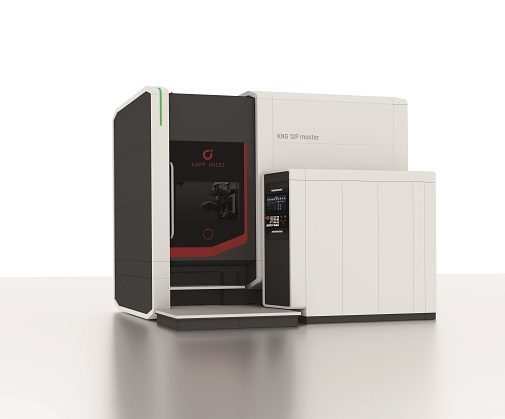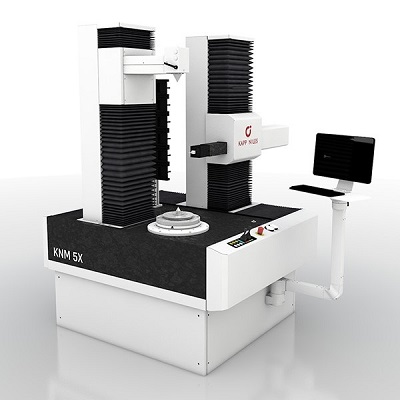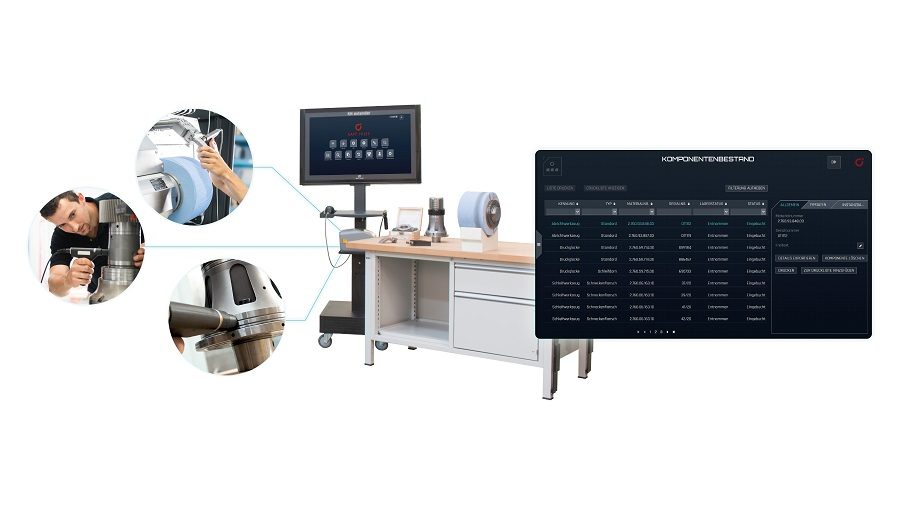
State of the Gear Industry Perspectives: Kapp Technologies
State of the Gear Industry Perspectives takes an in-depth look at the challenges and opportunities in gear manufacturing today and in the future. Our sixth installment online is an interview with Shane Hollingsworth, vice president of sales, Kapp Technologies.
 Shane Hollingsworth
Shane Hollingsworth
What are the greatest challenges to your business in 2023?
Coming into 2023 we are going to be quite busy with a number of new projects which is a good thing, but at the same time this brings on challenges that we have been facing the previous year that appear to not be going away. Supply chains are still stretched out and at times unpredictable which makes scheduling difficult, it’s no secret the industry is looking to solve a skilled labor shortage, mix in unreliable schedules only adding to the complexity. We are not seeing one area that is affected, it's everything from bearings, electronics, controllers, and vessel delays to name a few. One area we are continuously investing is the future planning of our workforce, we see that longer term investments are necessitated to build up the next generation employee where previously possible to employ someone with initial knowledge. Succession planning is becoming more and more important to avoid gaps in the future.
What global manufacturing trends are you paying close attention to in the gear industry today?
Clearly, the evolution of the EV market has significant attention. We have seen in Europe along with China that this market is further along being accepted. North America has only touched its toe in the water for this market, we see more and more projects being introduced, but still at a much lower production scale. Future energy prices, infrastructure, and legislation will be major influencers for how this market continues to develop.
Skilled employees are one of the largest if not the biggest task we all face today, unfortunately this doesn’t appear to have a short-term solution and each organization is looking for a solution. States and local municipalities are making more and more investments which is a good start, but these need to grow on a larger scale to address the larger problem. The machines being built today are being tasked more to help alleviate this pressure, time will tell how far this evolves the controller's and software's of the future.
 KNM 5X is designed for high-precision measurements of gears, gear tools and rotationally symmetric workpieces up to a diameter of 650 mm.
KNM 5X is designed for high-precision measurements of gears, gear tools and rotationally symmetric workpieces up to a diameter of 650 mm.What is the state of your business regarding training and developing your skilled workforce internally and the state of finding skilled workers to join the organization?
Everyday challenge that we face, as it has been well known that at our headquarters, we have a nice apprenticeship program and we have started offering “summer internships” where we bring future employees to the United States for eight weeks. Our hope is that once they graduate, one of their first interests will be to join our organization in North America. Of course, we can’t rely on this pipeline for everything and since the pandemic the idea has challenged us to be more creative in our solutions versus always following the traditional path.
 KN Extender maps the customers’ operation, labelling and management of all components outside the machine.
KN Extender maps the customers’ operation, labelling and management of all components outside the machine.How is your organization evolving when it comes to emerging technologies such as IIoT, additive manufacturing, electrification, etc.?
Electrification and IIoT are two key areas that have been a major focus over the past five years. Europe and China have driven the electrification wave as their markets have adopted this early on. The technology that is required, driven by the stringent quality requirements of EV vehicles, have really forced electrification and IIoT to work hand and hand. These gears are extremely sensitive to certain features/characteristics that cannot be found by looking at a simple gear chart, these require an in-depth review of the entire process to decipher.
What role is sustainability and green manufacturing playing in your organization in 2023?
At our primary facilities where the machines are manufactured and assembled, we focus intently on being as green as possible from solar panel roofs to energy efficient certified controllers to waste reduction. Being environmentally responsible is important to our group, we have joined the “BLUecoMPETENCE” as part of our journey. We have invested in EV cars for our fleet of service vehicles as well as an employee program to lease a bicycle or e-bike.
Describe the role automation/robotics plays in your business today and how these technologies will evolve in the coming years?
The level of automation has a significance in our design of current and future machine tools, the markets we serve are quite diverse and range from a volume 1 to 10,000,000. Clearly, the automotive sector is the leader in automation/robotics utilization and for such we offer machines capable to interface with varying platforms and sizes.
Do you believe it’s necessary to bring in system integrators, data engineers, and mechatronics experts to diversify your workforce?
This is a question that never will go away but evolves with technology. I am sure when the first CNC machines were introduced, we were all looking at the same questions/ challenges. Today, those challenges are the same, but different for the next generation of employees. We have seen the trend where employees are looking for more than a paycheck (of course this is still very important), they want to see how the product being manufactured is influencing the world. Our practices have to follow these trends essentially connecting our employees to the world beyond where our products are implemented. We see closer collaboration with the entire supply chain to provide success. Does this require 100 percent data driven experts? Data is an important tool, but it will also require the skill to understand and interpret this data. Data alone cannot be the only means for which we make our business decisions but can be one tool we use to guide us. Each organization will have to evaluate the need and/or level required for their organization to be successful.
